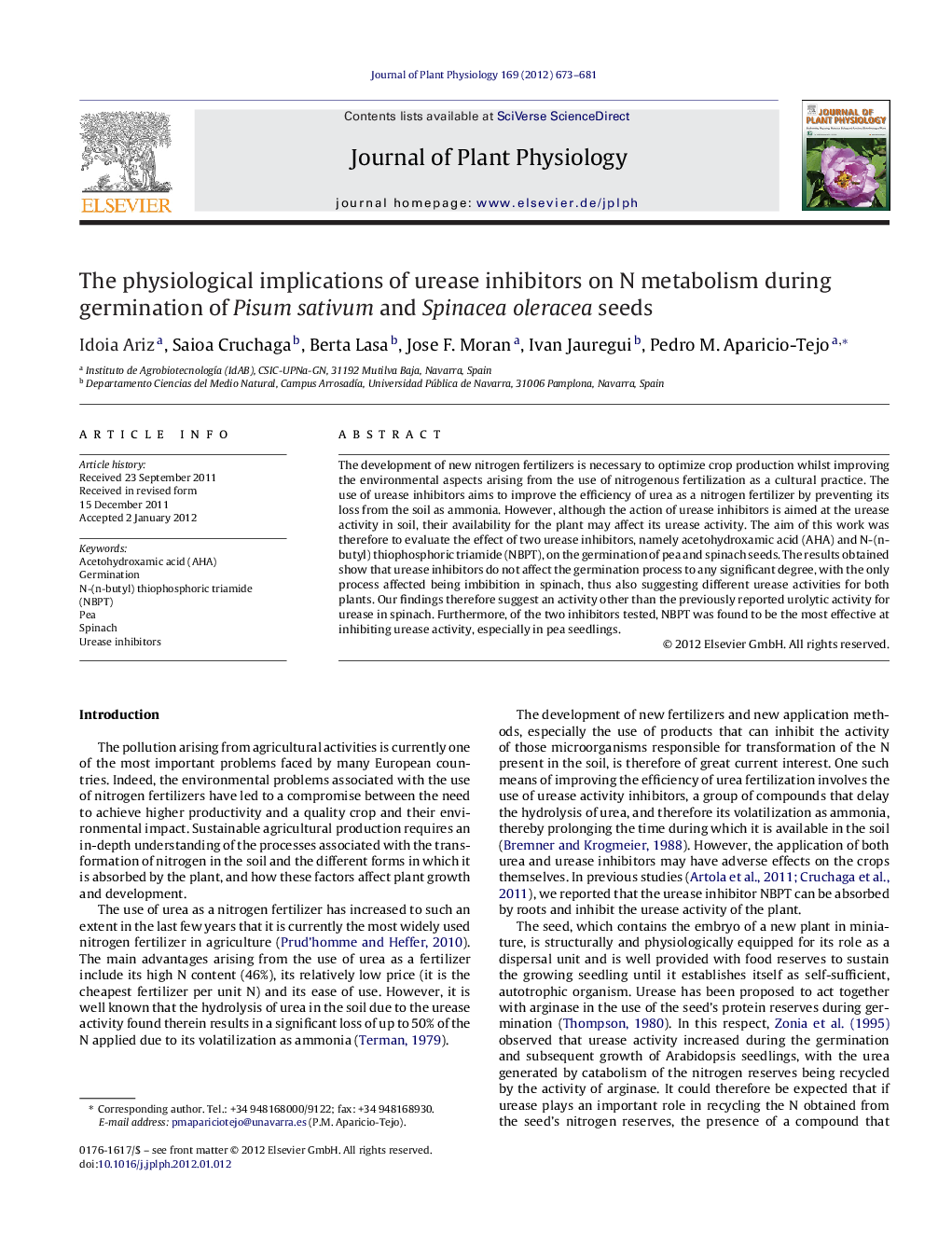| Article ID | Journal | Published Year | Pages | File Type |
|---|---|---|---|---|
| 2056374 | Journal of Plant Physiology | 2012 | 9 Pages |
The development of new nitrogen fertilizers is necessary to optimize crop production whilst improving the environmental aspects arising from the use of nitrogenous fertilization as a cultural practice. The use of urease inhibitors aims to improve the efficiency of urea as a nitrogen fertilizer by preventing its loss from the soil as ammonia. However, although the action of urease inhibitors is aimed at the urease activity in soil, their availability for the plant may affect its urease activity. The aim of this work was therefore to evaluate the effect of two urease inhibitors, namely acetohydroxamic acid (AHA) and N-(n-butyl) thiophosphoric triamide (NBPT), on the germination of pea and spinach seeds. The results obtained show that urease inhibitors do not affect the germination process to any significant degree, with the only process affected being imbibition in spinach, thus also suggesting different urease activities for both plants. Our findings therefore suggest an activity other than the previously reported urolytic activity for urease in spinach. Furthermore, of the two inhibitors tested, NBPT was found to be the most effective at inhibiting urease activity, especially in pea seedlings.
